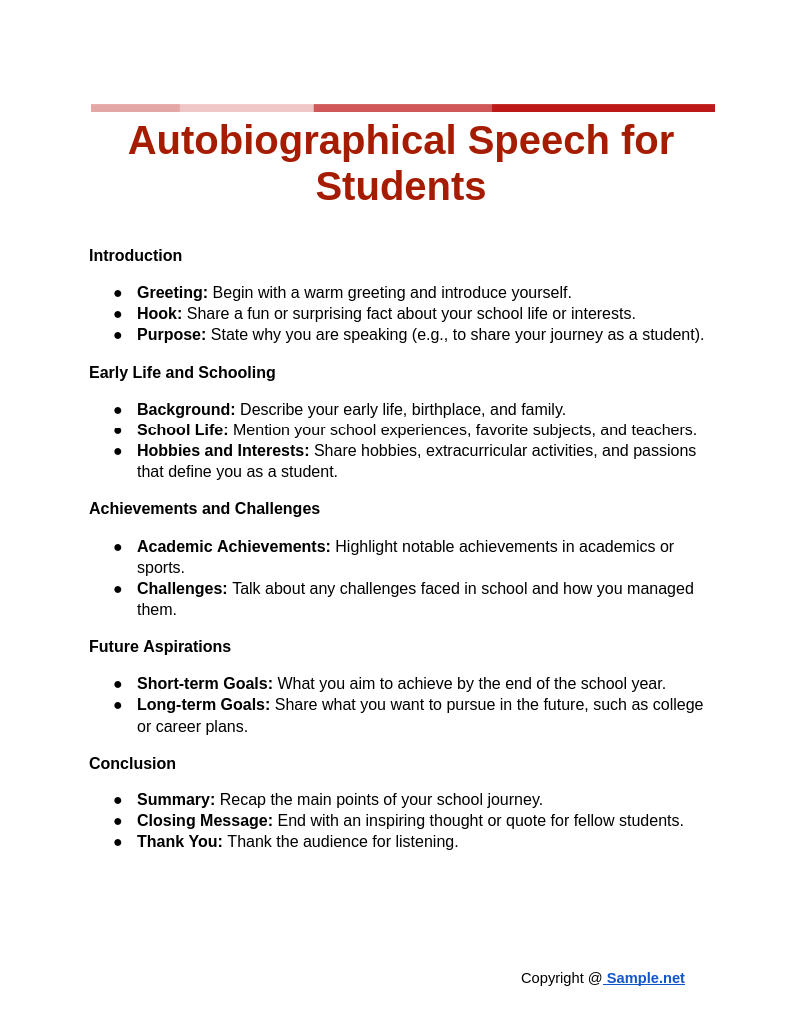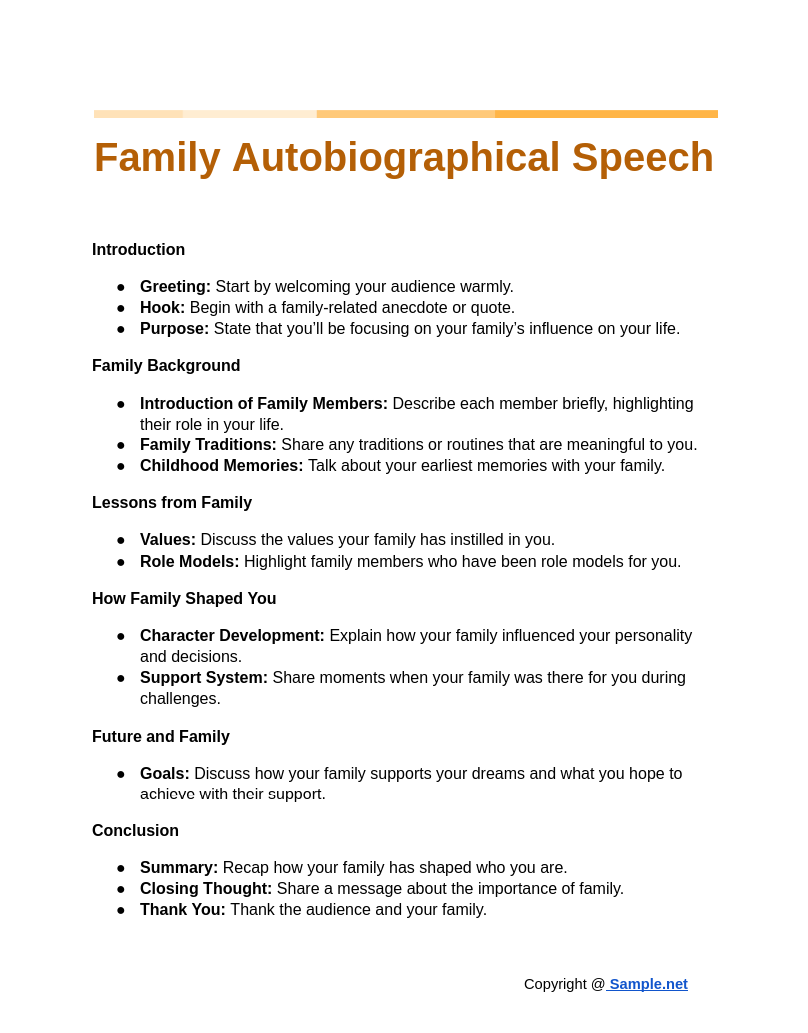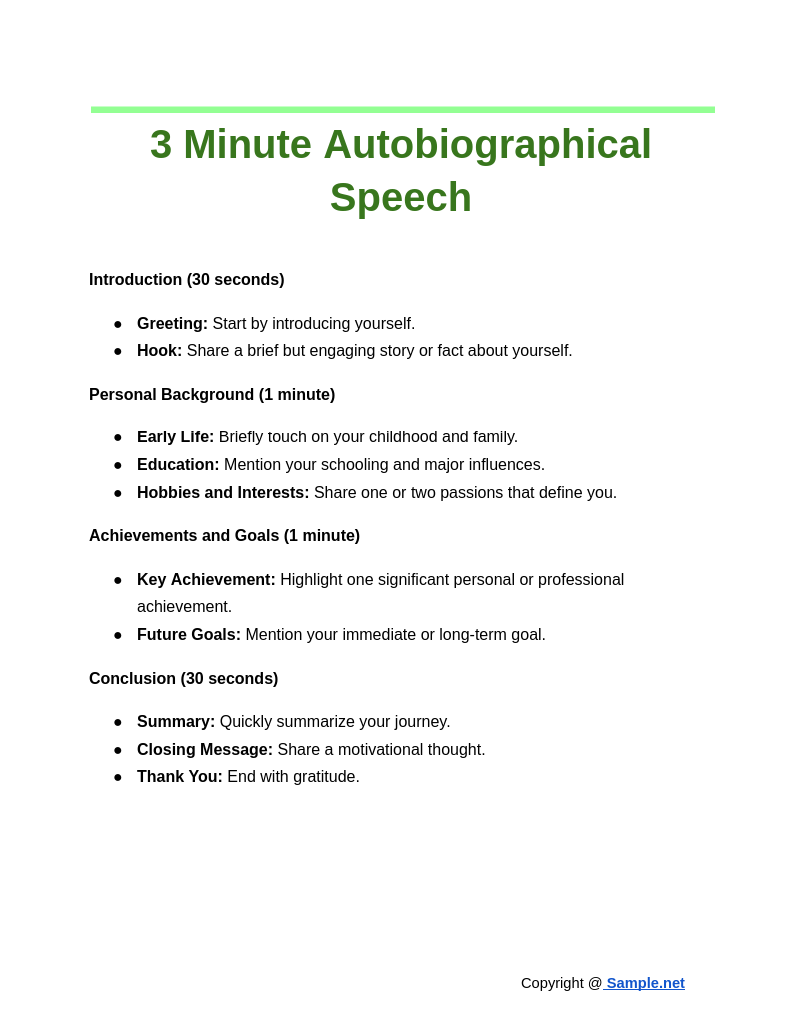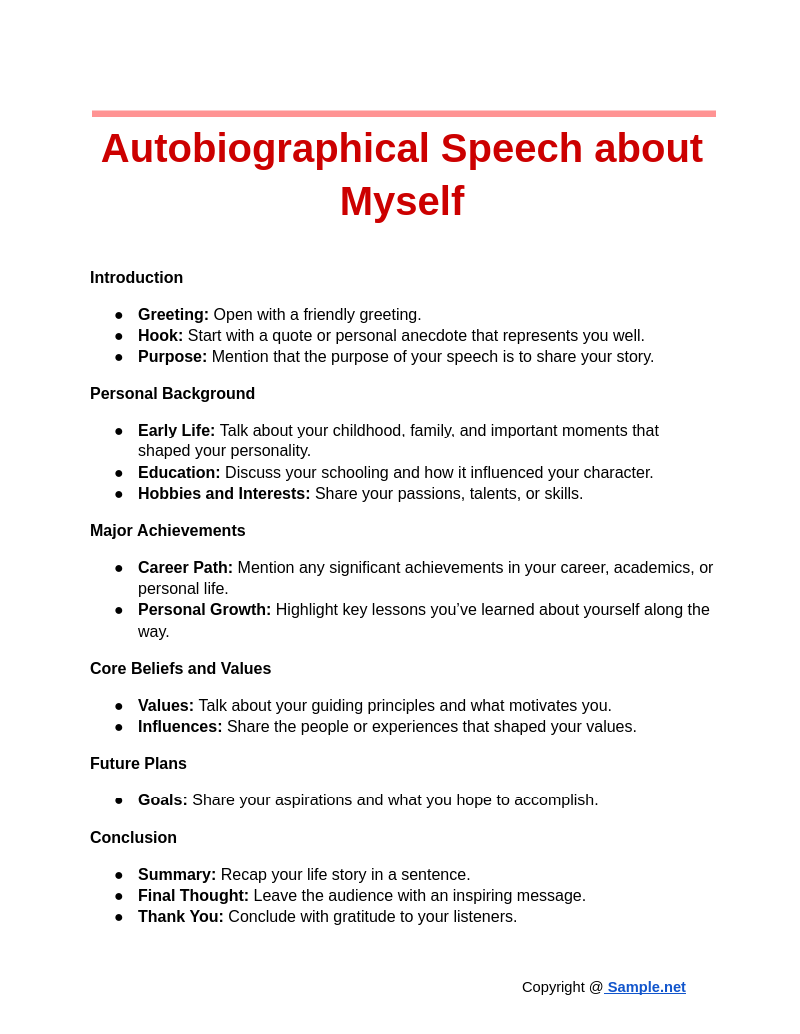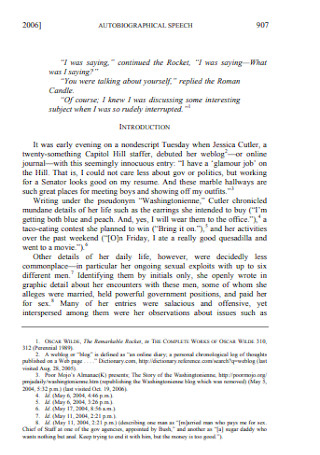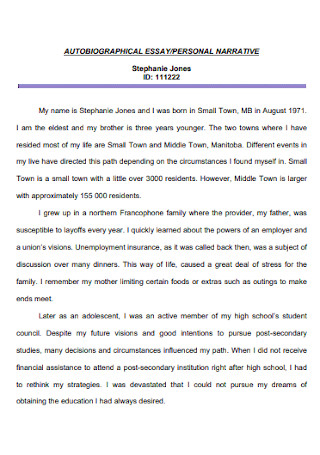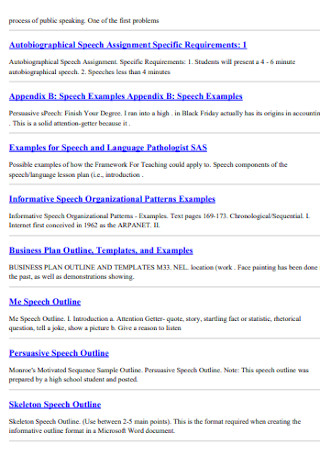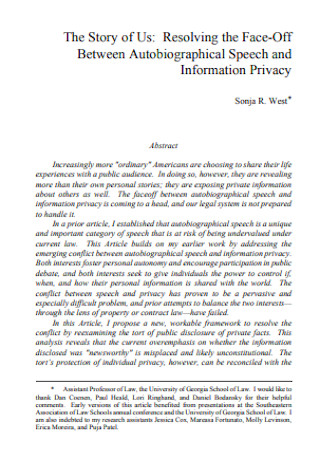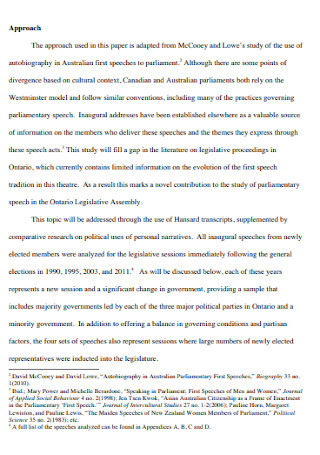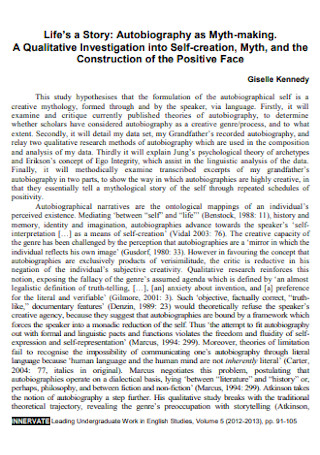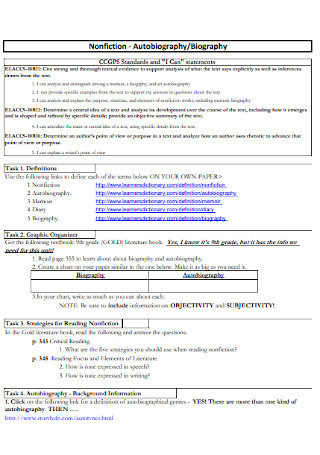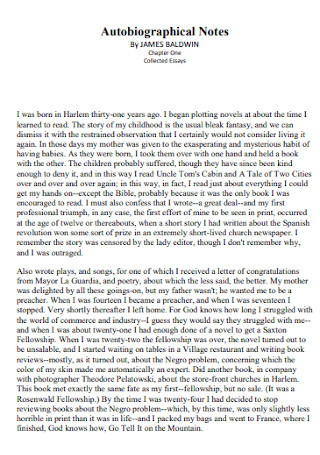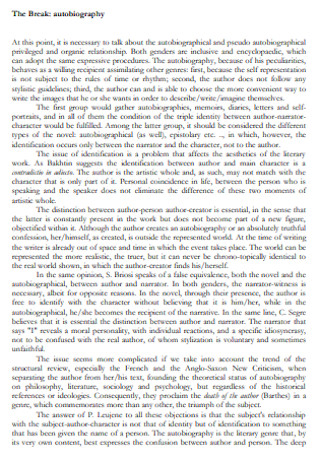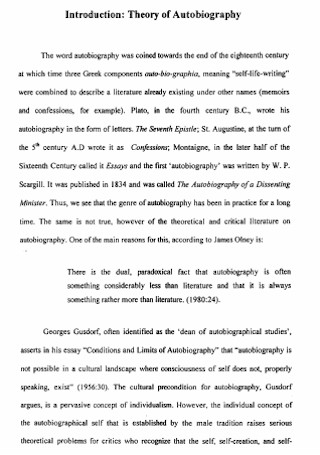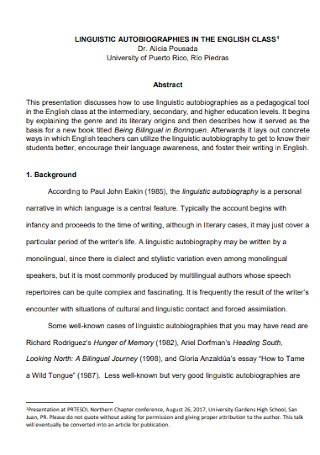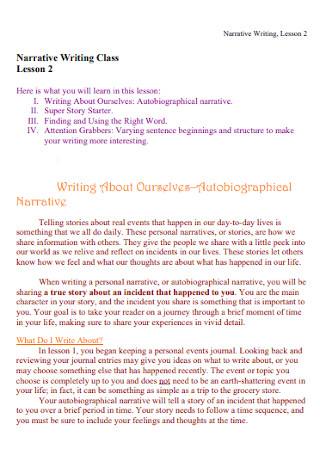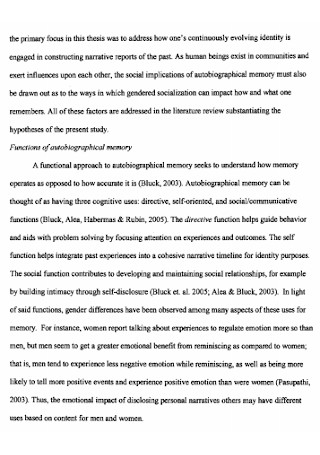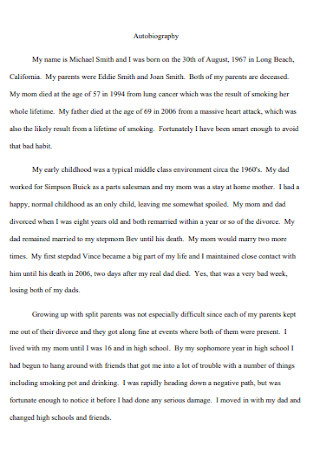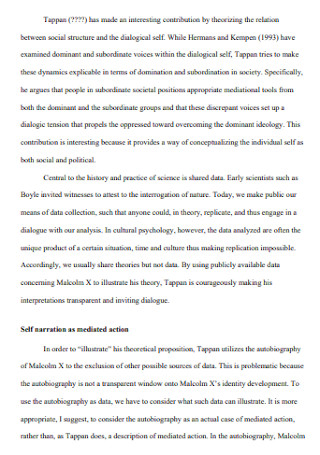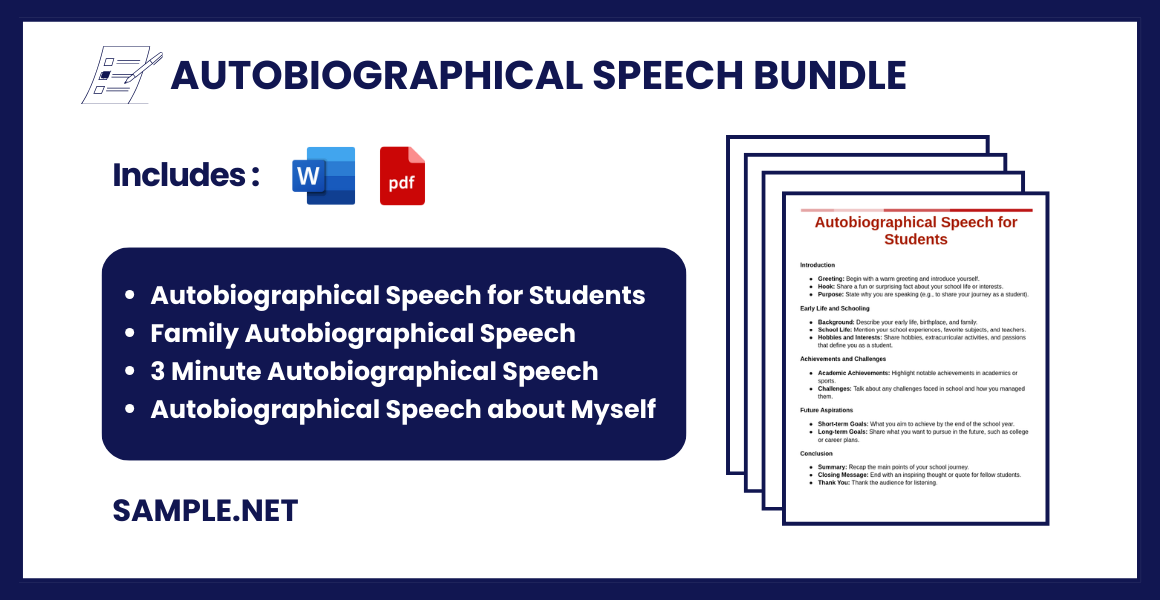How to Make an Autobiographical Speech?
As much as delivering your speech is hard enough, writing what you need to say isn’t easy as well. Deciding which parts of your life story to tell that doesn’t last a lifetime where you end up speaking to snoring attendees may make you anxious and doubtful. You can also see more on Thank You Speech For Award. Here are some tips to help you:
Step 1: Surround a Single Idea
You can’t stand in front of a gathering and begin telling them everything about your life. That’s highly unnecessary and a waste of time. Besides, no matter how famous and interesting you might, no one would sit and lend hours of their day to listen to your statements. Pick a single theme and start from there. If you don’t know what idea to base your speech upon, assess your audience and the nature of the event where you’re going to present. Are you talking to students? To businessmen? To fellow colleagues who share the same industry as you? After identifying your audience, ask yourself again: what is this occasion all about? By piecing this information together, you’ll get a good glimpse of what autobiographical angle to pick. For example, if you’re going to present your story in front of the class, highlight your life as a student and as a child of the family because it’s something that your audience can grasp and relate to.
Step 2: Decide on Key Points
Now that you have the main idea at hand, it’s time to plot what main points from the topic you would like to include in your speech document. Taking the example mentioned above, as a student, what ideas you might want to share to the class? Your main points can be your childhood experiences, noteworthy accounts as a student, and your family’s life in general. Make sure that key points all correlate with your main idea. This helps you efficiently identify what to include and what to omit from your document. You can also see more on School Action Plan.
Step 3: Support Key Points with Details
What makes speeches engaging lies in its details. Those quirky and funny stories, lessons learned from the experiences, and a descriptive narrative of a joyous occasion. Partner your key points with details. This expands your main ideas, which ultimately lays out the story that you want to share. However, remember to control the length of your details. You don’t want to overwhelm a single point with excessive information that may or may not be important. Choose only those that you think may sum up your idea or pick a single occasion as a highlight.
Step 4: Organize Them Through an Outline
Bring everything you’ve gathered and organize them into an outline. This allows you to decide which point should come first and how you piece all them together seamlessly. This determines the entire flow of your speech. Use bullets or Roman Numerals to mark each point. When you’ve finished the outline, turn it into an essay copy or the actual words you’ll be delivering on stage. You can also see more on School Notes.
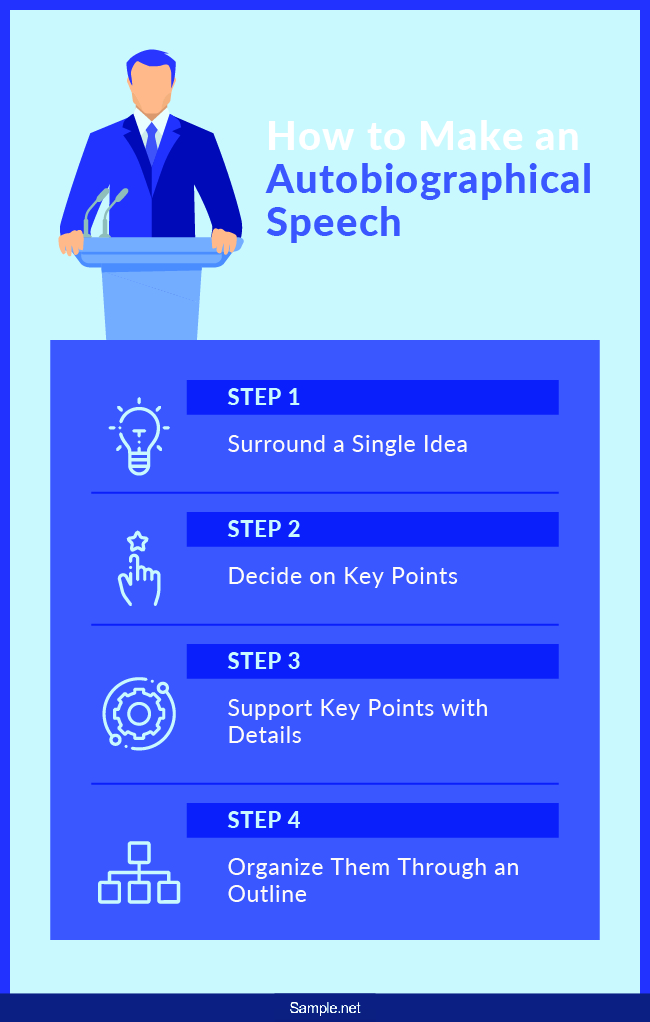
Faqs
How long should your speech be?
There is no proper answer to this because this depends on the situation. In most cases, a speaker is given a time limit. If you want to know how long your script should be to fit a specific time frame, remember that on the average, a person says 130 words per minute. Estimate your copy according to that. So, if you’re given 5 minutes to stand on a podium, your copy should be around 600 to 700 words. You can also see more on Student Letter of Recommendation.
How to effectively rehearse for a speech?
The best way to practice your speech is to record your practice rehearsal. Observe if you do unnecessary hand and body movements, or if you look too stiff and unmoving. Assess your voice’s modulation and identify whether it’s too loud, too low, or too quirky. You can also have a colleague or a friend come and observe your performance so they can give you helpful tips on how to improve your speech better.
Do you need to memorize your entire speech?
No. But even if you’re bringing a copy on stage, you should still practice vigorously, or you’ll only be reading in front of the people instead of delivering a speech.
How do you differentiate a speech from a presentation?
A presentation usually involves visual aids such as a powerpoint report or a video component. On the other hand, a speech relies solely on spoken words. When a speech is delivered, an audience is invited to listen, whereas, in a presentation, the audience expects to learn.
What topics should be covered in an autobiographical speech?
Focus on formative events, major achievements, personal challenges, and life lessons in your autobiographical speech. Include milestones like education, career, or personal growth that shaped you. Highlight events that reveal your values, goals, or turning points in your life. Use a clear structure that keeps your speech engaging and relevant to the audience. You can also see more on School Sponsorship Proposal.
How should you start an autobiographical speech?
Start with an engaging hook like a vivid memory, intriguing quote, or unexpected fact about yourself. A strong opening captures the audience’s attention and sets the tone for the rest of the speech. Use a story that highlights a defining moment in your life. This approach makes your introduction more impactful and memorable.
How can you prepare for delivering an autobiographical speech?
Practice delivering the speech multiple times, focusing on pacing, clarity, and expression. Rehearse in front of a mirror or with friends to get feedback on body language and delivery. Adjust content based on time constraints and clarity, making sure key points are effectively conveyed. Familiarity with your speech boosts confidence during the actual delivery. You can also see more on Medical School Letter of Recommendation.

